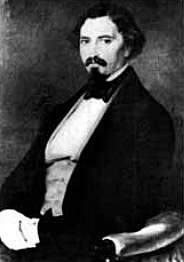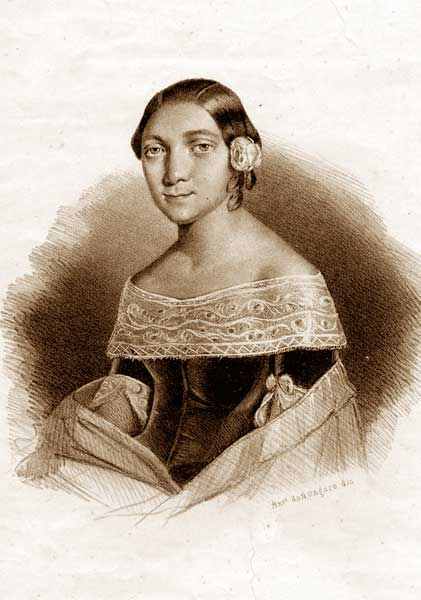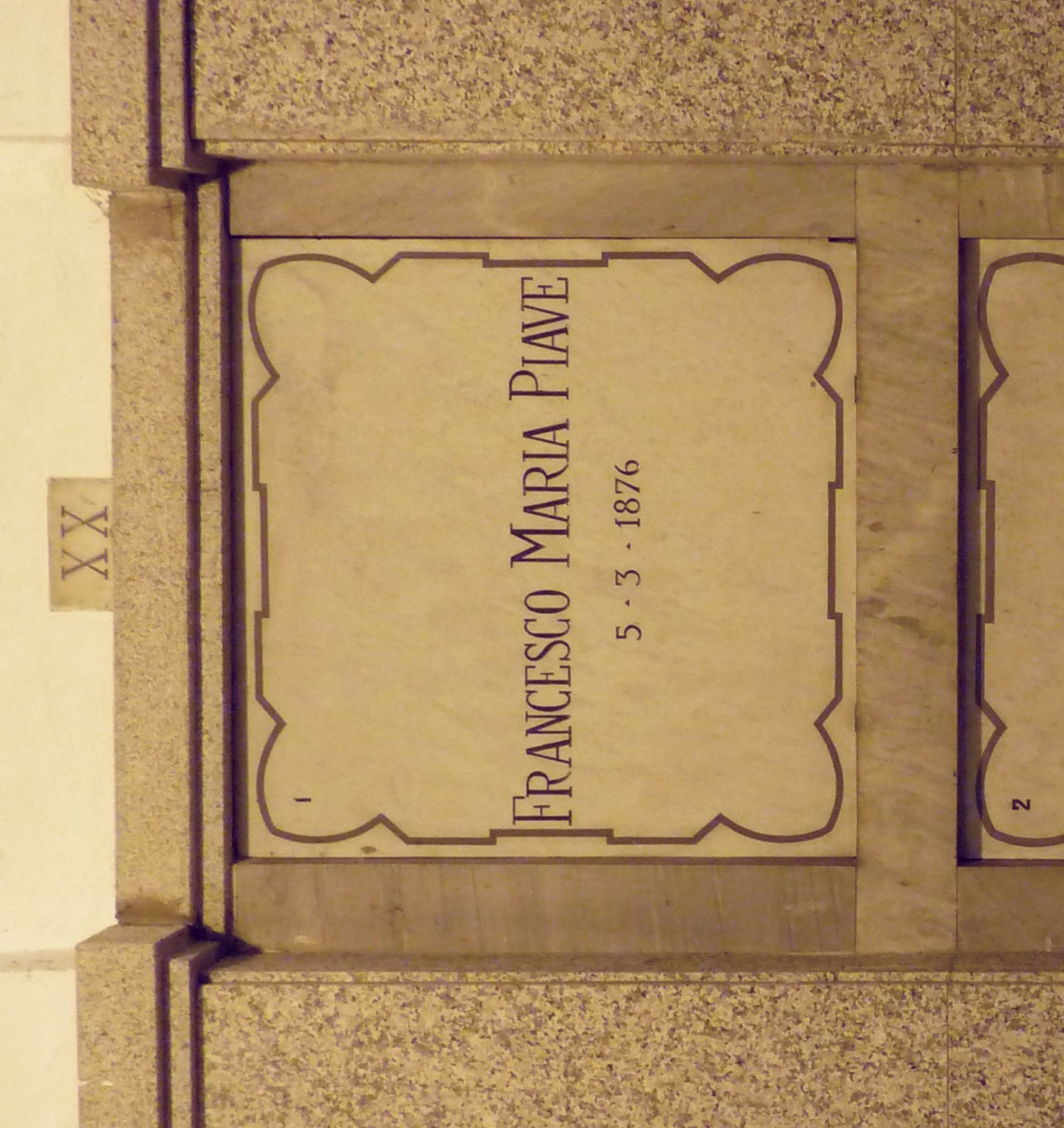|
Ernani
''Ernani'' is an operatic ''dramma lirico'' in four acts by Giuseppe Verdi to an Italian libretto by Francesco Maria Piave, based on the 1830 play ''Hernani (drama), Hernani'' by Victor Hugo. Verdi was commissioned by the Teatro La Fenice in Venice to write an opera, but finding the right subject took some time, and the composer worked with the inexperienced Piave in shaping first one and then another drama by Hugo into an acceptable libretto. As musicologist Roger Parker notes, the composer "intervened on several important points, insisting for example that the role of Ernani be sung by a tenor (rather than by a contralto as had originally been planned)".Parker, p. 71 ''Ernani'' was first performed on 9 March 1844, and it was "immensely popular, and was revived countless times during its early years". It became Verdi's most popular opera until it was superseded by ''Il trovatore'' after 1853. In 1903, it became Ernani (1903 La voce del padrone recording), the first opera to be ... [...More Info...] [...Related Items...] OR: [Wikipedia] [Google] [Baidu] |
Carlo Guasco
Carlo Guasco (16 March 1813 – 13 December 1876) was a celebrated Italian operatic tenor who sang in Italian and other European opera houses from 1837 to 1853. Although he sang in many world premieres, he is most remembered today for having created the leading tenor roles in Verdi's ''I Lombardi alla prima crociata'', ''Ernani'', and ''Attila''. Biography Carlo Guasco was born in Solero, a small town in the Piedmont region of Italy. He showed an early talent for music and singing as well as mathematics, and initially trained as a surveyor at the University of Turin. He also studied piano with his cousin, Giuseppe Guasco. When the voice teacher and composer, Giacomo Panizza, heard Guasco's voice, he convinced him to give up his work as a surveyor and study with him in Milan. Guasco overcame the objections of his family to a career on the stage and began his studies with Panizza in September 1836. After only a few months, he made his stage debut at La Scala singing the relatively ... [...More Info...] [...Related Items...] OR: [Wikipedia] [Google] [Baidu] |
I Due Foscari
' (''The Two Foscari'') is an opera in three acts by Giuseppe Verdi to an Italian libretto by Francesco Maria Piave, based on the 1821 historical play, ''The Two Foscari (Byron), The Two Foscari'' by Lord Byron. After his success with ''Ernani'', Verdi received a commission from Rome's Teatro Argentina and he went to work with Piave in considering two subjects, one of which eventually became this opera. ''I due Foscari'' was given its premiere performance in Rome on 3 November 1844 and was generally quite successful, although not on the scale of ''Ernani'', which remained Verdi's most popular opera until ''Il trovatore'' in 1853. Composition history After ''Ernani'', Verdi had considered a large number of projects for the future and the Byron play was one of them. ''Foscari'' had even been considered as early as 1843 when he had been approached by La Fenice in Venice, but it was rejected as unsuitable because the story included criticism of actions of the Republic of Venice which ... [...More Info...] [...Related Items...] OR: [Wikipedia] [Google] [Baidu] |
Giuseppe Verdi
Giuseppe Fortunino Francesco Verdi ( ; ; 9 or 10 October 1813 – 27 January 1901) was an Italian composer best known for List of compositions by Giuseppe Verdi, his operas. He was born near Busseto, a small town in the province of Parma, to a family of moderate means, receiving a musical education with the help of a local patron, Antonio Barezzi. Verdi came to dominate the Italian opera scene after the era of Gioachino Rossini, Vincenzo Bellini, and Gaetano Donizetti, whose works significantly influenced him. In his early operas, Verdi demonstrated sympathy with the Risorgimento movement which sought the unification of Italy. He also served briefly as an elected politician. The chorus "Va, pensiero" from his early opera ''Nabucco'' (1842), and similar choruses in later operas, were much in the spirit of the unification movement, and the composer himself became esteemed as a representative of these ideals. An intensely private person, Verdi did not seek to ingratiate hims ... [...More Info...] [...Related Items...] OR: [Wikipedia] [Google] [Baidu] |
Ernani (1903 La Voce Del Padrone Recording)
The recording of Verdi's ''Ernani'' in 1903 by La voce del padrone was the first complete opera recording. It was issued on 40 single-sided discs. The first complete orchestral recording, Arthur Nikisch's recording of Beethoven's Fifth Symphony, was made in 1913.University of Illinois at Urbana-Champaign. Graduate School of Library and Information Science, "Occasional papers, Num. 174 to 179", 1986: "The first complete opera, Verdi's Ernani, was recorded in 1903. It took up 40 single-sided discs and was issued on the La voce del padrone La voce del padrone was the Italian label and recording house for the British Gramophone Company. The Gramophone Company owned several labels in Italy, like Columbia, Marconiphone, Angel Records and Grammofono. From 1904, Gramophone Company rec ... label.22 The first complete orchestral recording, Beethoven's Fifth Symphony, was not made until 1913." References Notes Sources *Dearling, Robert and Celia; and Brian A. L. Rust, ''Guinness Book of ... [...More Info...] [...Related Items...] OR: [Wikipedia] [Google] [Baidu] |
La Voce Del Padrone
La voce del padrone was the Italian label and recording house for the British Gramophone Company. The Gramophone Company owned several labels in Italy, like Columbia, Marconiphone, Angel Records and Grammofono. From 1904, Gramophone Company records were published and distributed in Italy by Saif (''Società Anonima Italiana di Fonotopia''), a company based in Milan. When the Gramophone Company and the Columbia Graphophone Company merged in 1931 to form EMI, Saif in turn merged with Columbia's Italian arm, SNG (''Società Nazionale del Grammofono''). See also * Gramophone Company * EMI EMI Group Limited (formerly EMI Group plc until 2007; originally an initialism for Electric and Musical Industries, also referred to as EMI Records or simply EMI) was a British transnational conglomerate founded in March 1931 in London. At t ... References Sources * * * External links * Italian record labels {{Italy-record-label-stub ... [...More Info...] [...Related Items...] OR: [Wikipedia] [Google] [Baidu] |
Francesco Maria Piave
Francesco Maria Piave (18 May 18105 March 1876) was an Italian opera libretto, librettist who was born in Murano in the lagoon of Venice, during the brief Napoleonic Kingdom of Italy (Napoleonic), Kingdom of Italy. Career Piave's career spanned over twenty years working with many of the significant composers of his day, including Giovanni Pacini (four librettos), Saverio Mercadante (at least one), Federico Ricci, and even one for Michael Balfe. He is most known for his collaborations with Giuseppe Verdi, for whom he was to write 10 librettos, the best known being those for ''Rigoletto'' and ''La traviata''. But Piave was not only a librettist: he was a journalist and translator in addition to being the resident poet and stage manager at La Fenice in Venice where he first encountered Verdi. Later, Verdi was helpful in securing him the same position at La Scala in Milan.Baldini 1970, pp. 70 - 74 His expertise as a stage manager and his tact as a negotiator served Verdi very well, ... [...More Info...] [...Related Items...] OR: [Wikipedia] [Google] [Baidu] |
Hernani (drama)
''Hernani'' (full title: ''Hernani, ou l'Honneur Castillan'') is a drama in rhyming alexandrines by the French romantic author Victor Hugo. Title origin The title originates from Hernani, a Spanish town in the Southern Basque Country, where Hugo's mother and her three children stopped on their way to General Hugo's place of residence. History The play was given its premiere on 25 February 1830 by the Comédie-Française in Paris. Today, it is more remembered for the demonstrations which accompanied the first performance and for being the inspiration for Giuseppe Verdi's opera '' Ernani'' than it is for its own merits. Hugo had enlisted the support of fellow Romanticists such as Hector Berlioz and Théophile Gautier to combat the opposition of Classicists who recognised the play as a direct attack on their values. In Edgar Allan Poe's short story " The Masque of the Red Death", ''Hernani'' is used to describe the magnitude and elegance of Prince Prospero's masquerade. Gill ... [...More Info...] [...Related Items...] OR: [Wikipedia] [Google] [Baidu] |
Sophie Löwe
Johanna Sophie Christiane Löwe (24 March 1815 – 29 November 1866) was a German opera soprano, active mainly in Vienna and Berlin, and a House of Liechtenstein, Princess of Liechtenstein by marriage. She was one of the most famous German opera singers of her time.''Meyers Konversations-Lexikon, Meyers Großes Konversationslexikon'', 6th edition, vol. 12, p. 747. Life and career Sophie Löwe was born on 24 March 1815 in Oldenburg (city), Oldenburg, daughter of the actor Ferdinand Löwe (1787–1832). From 1831, she studied in Vienna under Giuseppe Ciccimarra. 1832 she debuted at the Kärntnertortheater. After a tour through northern Germany she got an engagement at the Berlin State Opera, Berlin Court Opera in 1837. Her most prominent performances were as the title character in Gaetano Donizetti's ''Maria Padilla'' (Milan, 1841), as Elvira in Giuseppe Verdi's ''Ernani'' (Venice, 1844), and as Odabella in Verdi's ''Attila (opera), Attila'' (Venice, 1846). She clashed with Verdi ov ... [...More Info...] [...Related Items...] OR: [Wikipedia] [Google] [Baidu] |
Libretto
A libretto (From the Italian word , ) is the text used in, or intended for, an extended musical work such as an opera, operetta, masque, oratorio, cantata or Musical theatre, musical. The term ''libretto'' is also sometimes used to refer to the text of major liturgical works, such as the Mass (liturgy), Mass, requiem and sacred cantata, or the story line of a ballet. The Italian language, Italian word (, ) is the diminutive of the word ''wiktionary:libro#Italian, libro'' ("book"). Sometimes other-language cognates, equivalents are used for libretti in that language, ''livret'' for French works, ''Textbuch'' for German and ''libreto'' for Spanish. A libretto is distinct from a synopsis or scenario of the plot, in that the libretto contains all the words and stage directions, while a synopsis summarizes the plot. Some ballet historians also use the word ''libretto'' to refer to the 15- to 40-page books which were on sale to 19th century ballet audiences in Paris and contained ... [...More Info...] [...Related Items...] OR: [Wikipedia] [Google] [Baidu] |
Antonio Selva
Antonio Selva (1824 - September 1889) was an Italian operatic bass who had an active international career from the 1840s through the 1870s. He was particularly associated with the works of Giuseppe Verdi. Life and career Born with the name Antonio Scremin in Padua, Selva was the brother of actor Giambattista Scremin. He originally trained to be an organ builder under Angelo Agostini. Angelo's father, the voice teacher Lorenzo Agostini, discovered his beautiful natural singing voice and began training him for an opera career. He made his professional opera debut in 1842 in one of the smaller theatre's in his home town as Zaccaria in Giuseppe Verdi's ''Nabucco''. He was also active as a member of the opera chorus at La Fenice Teatro La Fenice (; "The Phoenix Theatre") is a historic opera house in Venice, Italy. It is one of "the most famous and renowned landmarks in the history of Italian theatre" and in the history of opera as a whole. Especially in the 19th cen ... while ... [...More Info...] [...Related Items...] OR: [Wikipedia] [Google] [Baidu] |
Donizetti
Domenico Gaetano Maria Donizetti (29 November 1797 – 8 April 1848) was an Italian Romantic composer, best known for his almost 70 operas. Along with Gioachino Rossini and Vincenzo Bellini, he was a leading composer of the ''bel canto'' opera style during the first half of the nineteenth century and a probable influence on other composers such as Giuseppe Verdi. Donizetti was born in Bergamo in Lombardy. At an early age he was taken up by Simon Mayr who enrolled him with a full scholarship in a school which he had set up. There he received detailed musical training. Mayr was instrumental in obtaining a place for Donizetti at the Bologna Academy, where, at the age of 19, he wrote his first one-act opera, the comedy '' Il Pigmalione'', which may never have been performed during his lifetime. An offer in 1822 from Domenico Barbaja, the impresario of the Teatro di San Carlo in Naples, which followed the composer's ninth opera, led to his move to Naples and his residency there un ... [...More Info...] [...Related Items...] OR: [Wikipedia] [Google] [Baidu] |







